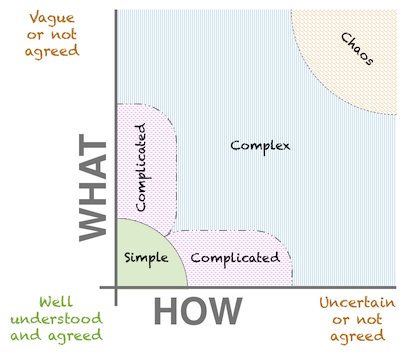Create Agreement When Selling to Churches
 When an audiovisual (AV) solution aligns perfectly with the needs of a potential client, the opportunity just about sells itself. In the house of worship market, local churches across the gamut of denominations have similar challenges and opportunities when it comes to AV technology. This should make selling a simple process for manufacturers and systems integrators. But that’s not often the case.
When an audiovisual (AV) solution aligns perfectly with the needs of a potential client, the opportunity just about sells itself. In the house of worship market, local churches across the gamut of denominations have similar challenges and opportunities when it comes to AV technology. This should make selling a simple process for manufacturers and systems integrators. But that’s not often the case.
If that’s what should happen, then why do so many vendors struggle to sell solutions that absolutely fit the need of churches? Could audiovisual manufacturers and systems integrators perhaps double their sales to churches by moving marketing and sales away from promoting features and benefits and towards aligning what churches need with how vendors can meet that need?
I submit the reason is deceptively simple: many vendors fail to create agreement with potential buyers.
Compete Against Expectations
The typical focus on unique features and key benefits has long been the way vendors promote and differentiate their products and services from competitors. But if churches are not comparing vendor feature lists in their decision-making process, then the audiovisual industry is missing the greater sales opportunity to demonstrate how technology solutions can be aligned to agree with the expectations of the church buyer.
As a result, AV vendors are missing sales to churches by focusing on features and benefits instead of aligning what churches want to do with how churches can do it with the vendor’s technology solution.

Creating agreement requires understanding the what the church wants from your technology and how they can implement and utilize the technology. The simple chart above highlights this reality by visualizing the intersection of well understood and agreed upon expectations as a simple purchasing decision.
Most AV technologies today have a lot of competition. And while it’s true some products have unique features, the overwhelming majority of church buyers are not looking for one particular feature or benefit; they’re looking for a solution, even if it’s in a single product. Manufacturers, distributors, systems integrators and AV dealers spend much of their marketing and sales efforts on comparing and contrasting features to make a sale. This method requires an enormous amount of effort and convincing to make a square peg fit into the client’s proverbial round hole.
Stop the madness of feature and benefit comparison and realize that you’re not competing against other products and services, but rather against a preferred future expectation of the client
Sell the Alignment of What Churches Want and Your Solution
Churches have a hard time making purchase decisions when what they want to do and how they need to do it are not well understood and agreed upon.
When a church presents a problem or opportunity for AV technology in their venues, the key is to determine the minimum viable opportunity for success first and then to create further alignment with how the technology can be employed and which technologies will most closely meet or exceed the expectations of the buyer.
Simple solutions are not those with less technology, but rather those technologies that combine to align the opportunity with the expectation of the client. When a vendor can create agreement between ‘what’ and ‘how’ for the client, the technology solution will almost sell itself.
When vendors do not articulate well understood and agreed upon expectations from church buyers, the value of the product or service diminishes. The less clarity there is in defining the scope of work in alignment with the expectation of the decision-maker for the church, the greater the chance of fear, uncertainty, and doubt clouding the buying process.
Churches need clear alignment between what they need to do and how they need to do it when it comes to audiovisual technology decisions. It’s time to stop focusing on marketing and sales on the features and benefits of products and services. Instead, create agreement with potential church technology buyers.
What say you? Share your views and links in the comments below.





